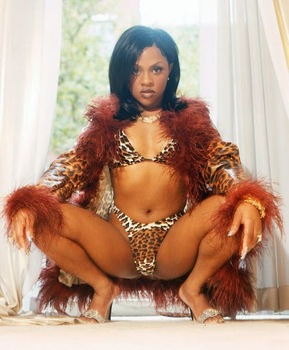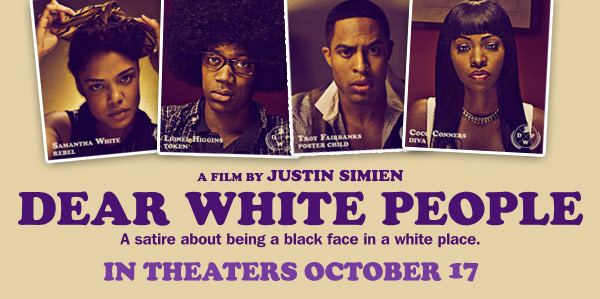By Paige Cober
Earlier this year, when I took my fourteen year old little brother to see the second installment of the recent X-Men prequels, X-Men: Days of Future Past, I wasn’t expecting to get quizzed on “just how much” I know about the Marvel universe.
We were talking about the differences between the Marvel Universe and 20th Century Fox’s casting of the Maximoff twins. I won’t get into the whole debate between the two studios and the absolute clusterfuck that ensued due to studio rights issues, because in that moment, what I knew didn’t really matter. What mattered was the fact that whatever I said caused a ruckus of laughter in the otherwise quiet seats behind us, and ended in a boy barely my age telling me, “The twin’s name isn’t Quicksilver. It’s the Silver Surfer.”
I had two options: either calmly tell him to mind his own business and that no, Pietro Maximoff is not in any universe the Silver Surfer -- film franchise or otherwise -- or ignore him and continue talking.
I ignored him.
In retrospect, I wish I had the courage to tell him the former, but I’m not that surprised that I couldn’t bring myself to do so. I was in a theater full of men wearing Marvel memorabilia who were just as big fans of the franchise as I was, if not more. It was reminiscent of the few times I attempted to venture into this seemingly “exclusive” world: when I went to New York Comic Con for the first time at fourteen and got dirty looks from the creative team of Justice League when I asked for a signature on their newest issue, those few times as a young teenager I found enough courage to walk into my local comic book shop and browse my favorite issues, or even that one time when I was ten and tried to play Yu-Gi-Oh in my local Toys R Us only for a boy my age to tell me I wasn’t good enough to play.
It doesn’t take a seasoned comic book fan to understand that Pietro Maximoff is Quicksilver, but to this boy at the theater, because I was a woman with an opinion on comic books, I had to be wrong. So I had a split second window to react and, within that split second window, even I believed him.
Because I identify as a woman, there is absolutely no way I could understand even the most basic comic book information.
As ridiculous as these situations are, my own experiences are the lesser side of the hostility toward women within Nerd Culture. Fortunately, most of this hostility doesn’t go further than these types of microaggressions, but sometimes -- just sometimes -- more extreme cases make their way into the limelight.
What I’m talking about is what has been recently dubbed the “GamerGate” controversy. It has received wide attention upon the attack of indie video game developer, Zoe Quinn, after she was accused by an ex-boyfriend of dating Kotaku writer Nathan Grayson to get positive reviews on her new game, Depression Quest. Users on anonymous forums 4chan and Reddit ended up attacking and threatening her to the point where she felt that she had to leave the internet, and eventually, her own home -- all for her own safety. These accusations, of course, were later proved impossible, as Grayson hadn’t even reviewed her work in the first place.
Despite this, GamerGate didn’t stop with Quinn. Anita Sarkeesian, host of the webseries Feminist Frequency, was attacked for her feminist commentary in pop culture, particularly surrounding women in video games. Like Quinn, Sarkeesian also had to leave her own home due death threats. But these threats weren’t just on her own life -- in the beginning of October, just days before her planned talk in Utah State University, a threat came out against the university itself. A terrifying manifesto was written through email by someone claiming to be a student at the university.
Among the cluster of threats directed at the student body, Sarkeesian, and a nearby women’s center, he wrote, “Feminists have ruined my life and I will have my revenge, for my sake and the sake of all the others they've wronged,” and promised to cause “the deadliest school shooting in American history.” Finally, he wrote, “you will never find me, but soon you will all know my name.” Sarkeesian later cancelled the talk because of the police’s refusal to check for concealed firearms during the event.
As terrifying as this was, unfortunately, this extreme hostility toward feminism isn’t a new occurrence. According to the Pew Research Internet Project, women aged 18-24 are significantly likely to experience “severe types” of harassment. To put this in perspective, over one-fourth of young women were either stalked or experienced online sexual harassment. Among these women, most are unable to escape the harassment even in their everyday life, i.e. -- GamerGate.
Felicia Day, an actress that has appeared in Supernatural, Buffy the Vampire Slayer, and a webseries about her life as a self-identified gamer, The Guild, wrote an entire blog post in response to her silence about GamerGate. Titled, “The Only Thing I Have to Say About GamerGate,” she describes her fears of being hacked, harassed, and threatened both online and in person if she spoke out about the recent events within the gaming community. Within days, it received over 45,000 notes on Tumblr – an exceptionally positive reaction within the Tumblr community.
Despite this positive reaction, within the first few minutes of the blog post, Day was doxxed and her personal information was posted all over the internet for anyone to see.
In other words, her worst fears had come true. Within her blog post, she states, “I have not said many public things about GamerGate. I have tried to leave it alone, aside from a few @ replies on Twitter that journalists have decided to use in their articles, siding me against the hashtag. Why have I remained mostly silent? Self-protection and fear.”
Unfortunately, this issue with women in Nerd Culture goes a lot deeper than empty threats and not because those within the subculture are particularly abrasive toward women. It’s because comic books, video games, card games, MMRPGs, and this whole wide array of media are traditionally written and produced by men. But the problem resides in the fact that women are a part of the Nerd Culture too and a huge chunk of it -- enough so that when any change is proposed to produce equality for that audience, or even content creators, it is met with a mix of both general hostility and violent threats.
In other words, the sex issue that exists in Nerd Culture reflects the culture of the outside world where women are coddled, de-legitimized, threatened, and told to shut up and deal with it because -- in the end -- our opinion doesn’t seem to matter.
Paige Cober is a Writing, Literature and Publishing major who grew up just outside of New
York City, between a prison, train station and a cemetery. Now going to school in Boston, she
enjoys iced coffee, sleeping and copious amounts of TV.



